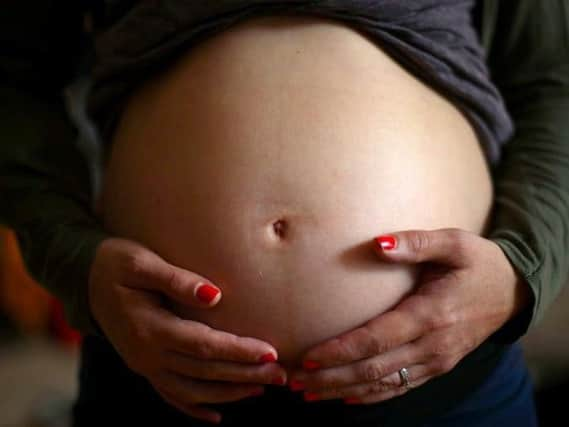Concern over figures on Wigan women suffering serious blood loss while giving birth


A landmark audit of maternity services across Great Britain has uncovered “unexplained variation” in the number of women sustaining severe birth complications, including major postpartum haemorrhages, one of the most common causes of maternal deaths.
Other news: Hens in the lens for Wigan animal rescue group's new calendarCampaigners say the experiences can have a severe impact on women’s mental health, and may even lead to post-traumatic stress disorder.
Advertisement
Hide AdAdvertisement
Hide AdAccording to the National Maternity and Perinatal Audit, 71 out of 2,522 women (3%) suffered a haemorrhage in which they lost at least 1,500ml of blood when giving birth at hospitals run by Wrightington, Wigan and Leigh NHS Foundation Trust in 2016-17.
The rate is four times higher than at the lowest ranked trust – the Dudley Group in the West Midlands – where only 0.7% of women were reported to have suffered a 1,500ml haemorrhage.
A further 823 women (34.4%) suffered haemorrhages in which they lost at least 500ml of blood, also higher than the national average.
Kim Thomas, chief executive of charity the Birth Trauma Association, said losing a lot of blood could leave women feeling very weak and struggling with milk production, and could be the cause of post-traumatic stress.
Advertisement
Hide AdAdvertisement
Hide Ad“A lot of women feel unprepared for the things that can go wrong in childbirth and sometimes blame themselves for events that were out of their control,” she said.
“A postpartum haemorrhage is a medical emergency. Typically, the midwife will ring a bell and other staff members will come rushing into the room.
“Because women don’t always know what’s happening, other than that something has gone wrong, it can be an incredibly frightening experience, and is often the focus of women’s PTSD flashbacks. It’s really important that women go into childbirth fully informed.”
Across the country, 2.9% of all women who gave birth suffered at least 1,500ml of blood loss, but for those who had a caesarean section the rate increased to 4.3%.
Advertisement
Hide AdAdvertisement
Hide AdWomen who are obese, have a long labour, or who have their first baby after they turn 40 are more likely to suffer a postpartum haemorrhage.
However, the audit found the geographical variation was beyond what would be expected based on demographic factors alone.
The Royal College of Obstetricians and Gynaecologists, which led the national audit, called on healthcare workers to use the figures to drive improvements to service quality.
A spokesperson for WWL said: “Our maternity services at Wrightington, Wigan and Leigh NHS Foundation Trust were rated as better than the national average in 10 of the 13 clinical outcome measures in the National Maternity and Perinatal Audit (NMPA), including the number of small for gestation age babies born at or after 40 weeks, spontaneous vaginal births, the number of instrumental deliveries, caesarean births, births without intervention, vaginal birth after primary caesarean section, third and fourth degree tears, episiotomy rates and unplanned readmissions within 42 days.
Advertisement
Hide AdAdvertisement
Hide Ad“Our rates of post-partum haemorrhage and major obstetric haemorrhage were both close to the national average and well below the upper rates reported in the audit.
“We have a rate of post-partum haemorrhage of 35.1 per cent against a national average of 34.1 per cent (range 10.1-50 per cent).
“The trust rate for major obstetric haemorrhage was 3.0 per cent against a national average of 2.9 per cent (range 0.8-5.7 per cent). As part of our ongoing efforts to put patients first, we regularly monitor all these outcomes and constantly look for ways to deliver further improvements.”